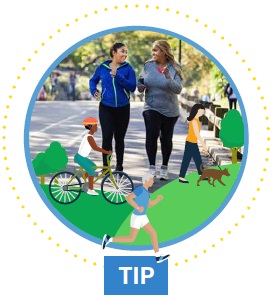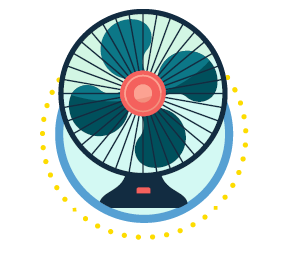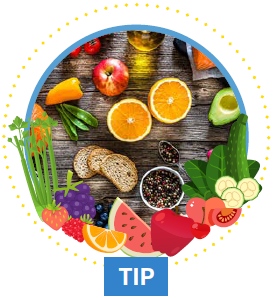Follow these tips to help prevent chronic disease and have a #HealthySummer.

1
Get at least 150 minutes of aerobic physical activity every week.
Physical activity has
immediate benefits for your
health: better sleep and
reduced anxiety are two.
2
Wear Sunscreen & Insect Repellent
Use shade, wide-brimmed hats, clothing that covers, and broad-spectrum sunscreen with at least SPF 15 for sun protection.
Use insect repellent and wear long-sleeved shirts and long pants to prevent mosquito bites and ticks.
If you use both sunscreen and insect repellent, apply sunscreen first. After you come indoors, check clothing, body, and pets for ticks.
3
Keep Cool in Extreme Heat
Extreme heat can be dangerous for everyone, but it may be especially dangerous for people with chronic medical conditions.
Stay cool.
Stay hydrated.
Stay informed.
4
Delicious fruits and veggies make
any summer meal healthier.
5
Drink fluoridated water instead of sugary or
alcoholic drinks to reduce calories and stay safe.
6
You can quit tobacco today! Find the free quitting support that’s right for you.
Call 1-800-QUIT-NOW.

Download the
QuitSTART Appexternal icon.
Access smokefree
tools and tips.
For more about how to prevent chronic disease and maintain a healthy lifestyle,
follow @CDCChronic on Twitter or visit www.cdc.gov/chronicdisease.
Original Article – https://www.cdc.gov/chronicdisease/resources/infographic/healthy-summer.htm










